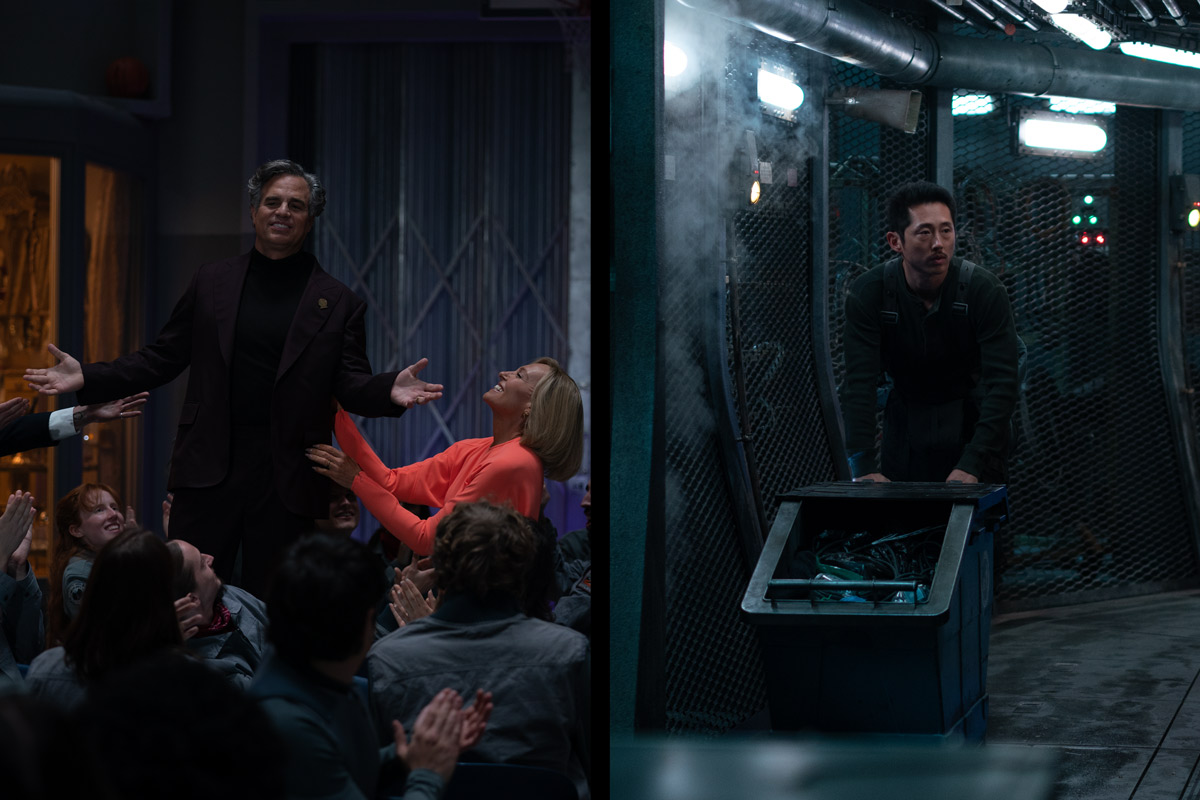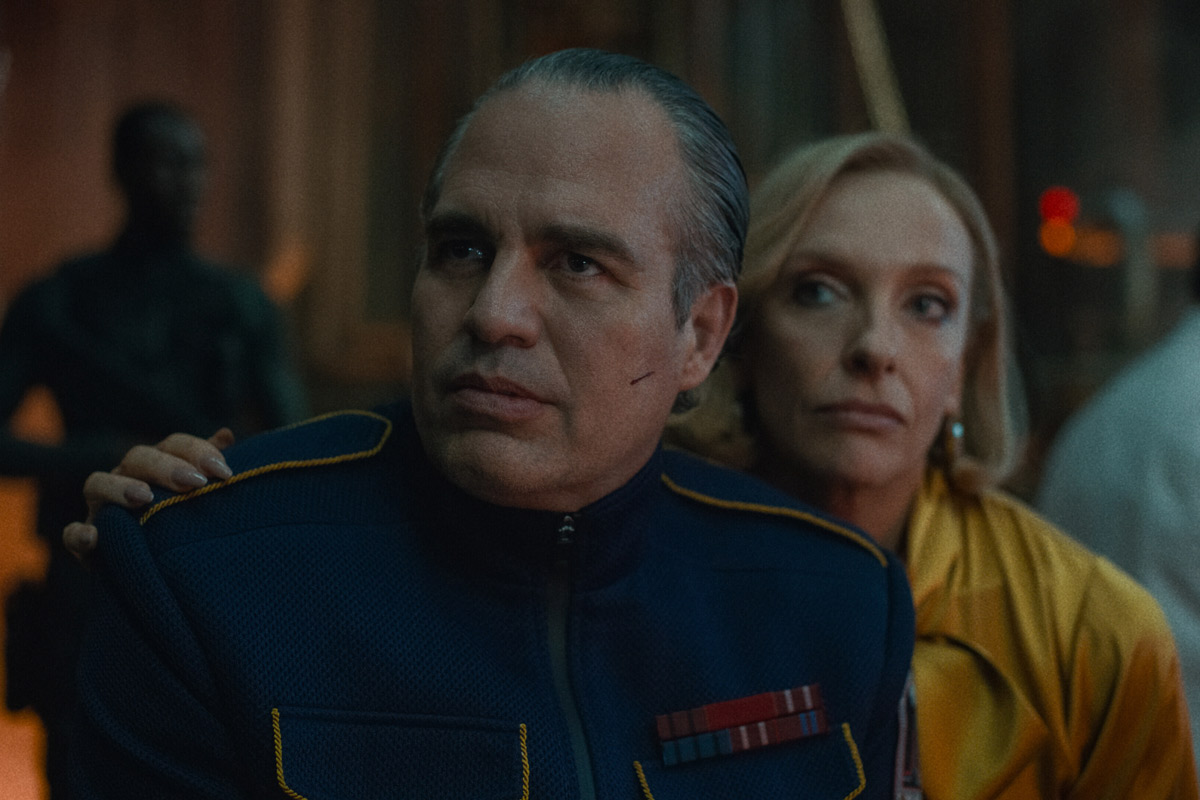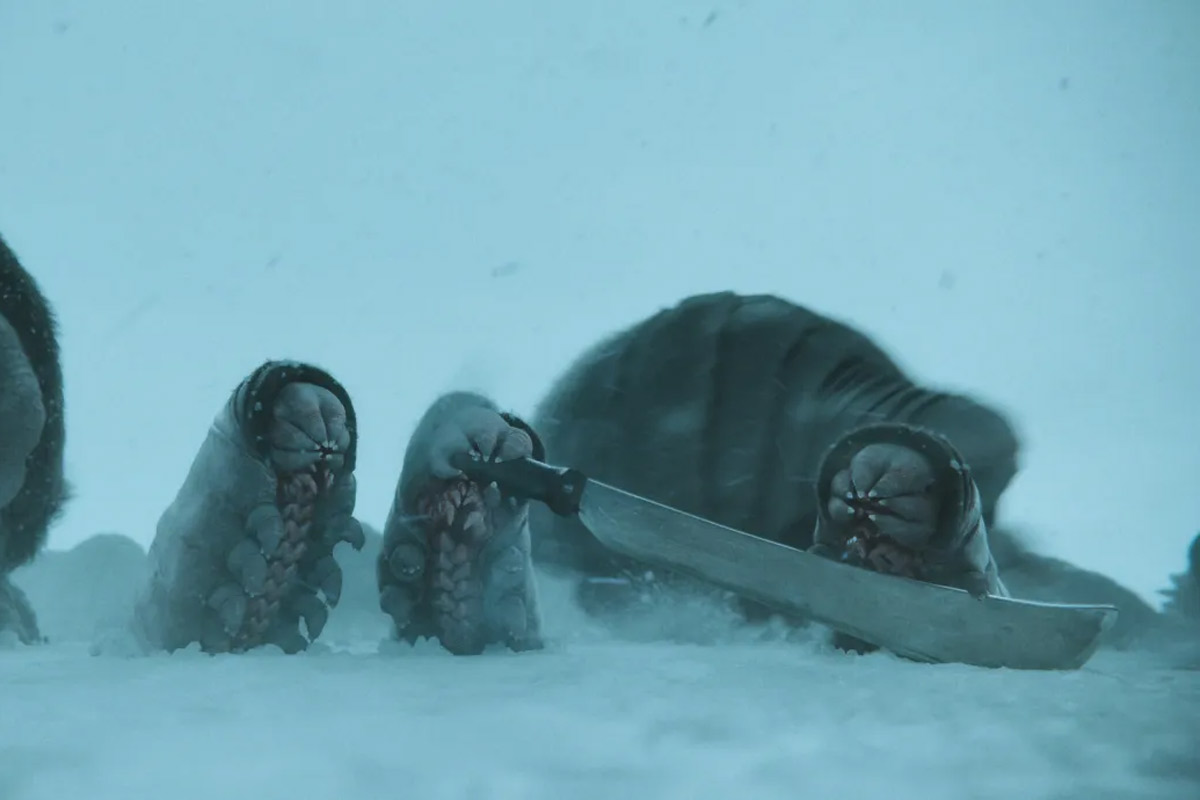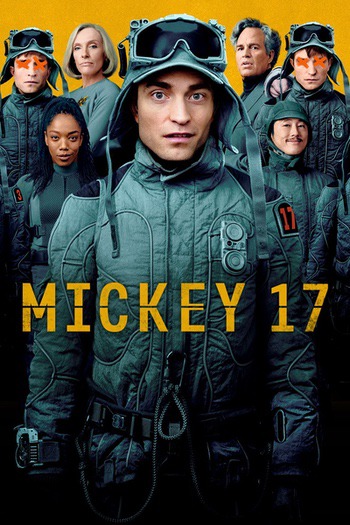From entry to entry, the South Korean director’s films might seem wildly unique and esoteric, but they share many of the filmmaker’s signature obsessions.
One of the most acclaimed international filmmakers currently working, South Korean writer-director Bong Joon-ho established himself as an arthouse sensation with his sophomore film, 2003’s Memories of Murder. He then crossed the indie film circuit to become a Hollywood powerhouse with 2013’s Snowpiercer, his English-language film debut.
His 2019 film, Parasite, garnered him even more global accolades: it made history at the 92nd Academy Awards, where it became the first non-English language film to win Best Picture. It was also the first Korean film to win the Palme d’Or at Cannes.
Bong’s work is celebrated in arthouse circles, but he doesn’t just work with esoteric material. Bong has a deep affinity for genre material, and his films are often as shocking, thrilling, and darkly funny as they are cerebral. Mickey 17, a sci-fi dark comedy based on the novel Mickey7 by Edward Ashton, is his much-awaited follow-up to Parasite and his biggest-scale effort yet. Here are four common tropes in Bong’s filmography, many of which are present in Mickey 17.

1) Class Is in Session
Most of Bong’s films explore and comment on class stratification and inequality. Before becoming a filmmaker, he read sociology at Yonsei University, but he claims this has less significance than one might think. “My major was sociology, but I know nothing about it. I spent most of my time during university at the school cinema club,” he said at the New York Film Festival in 2019.
A recurring theme in Bong’s films is the injustice experienced by people from lower socioeconomic classes. Parasite is his highest-profile film to exhibit this trope; in the movie, a low-income family infiltrates the lives of a rich family. Snowpiercer examines this theme through a sci-fi lens, with poor revolutionaries fighting their way through a train that traverses the post-apocalyptic frozen Earth, taking on the wealthy elites in the carriages at the front.
Mickey 17 is about an ‘expendable’ named Mickey (Robert Pattinson) who signs up to perform dangerous tasks on a spacefaring mission, so he repeatedly dies and is cloned (hence the ‘17’ in the title). At the lowest rung of society and eminently exploitable, he does the dirty work for the upper classes.

2) Questioning Authority
Linked to Bong’s commentary on class is the satirical element in many of his films that portray entities in power as incompetent, impotent, and often cruel. Based on real events, Memories of Murder is the most sombre example of this, in which police corruption obstructs a murder investigation. In Mother, the title character fights a corrupt judicial system after her intellectually disabled son is falsely accused of a crime. The monster in The Host is created after an American contractor at a military base in Korea dumps formaldehyde into the river (this is loosely inspired by the real-life McFarland toxic waste dumping incident of 2000). In Okja and Snowpiercer, wealthy corporations are depicted as exploitative, with spokespersons who are grandiose and silly. Mickey 17’s antagonist, Kenneth Marshall (Mark Ruffalo), is a disgraced politician who becomes something of a cult leader and hosts his own talk show, leading his followers to colonise the planet Niflheim.

3) Creature Feature
Bong has cited a wide range of influences, including films by revered directors such as François Truffaut, Hou Hsiao-hsien, Ingmar Bergman, and Martin Scorsese. He also has a love of genre films and recently screened John Carpenter’s The Thing at the Lincoln Center in New York. The Thing was critically lambasted upon its release but has since become beloved by horror fans and is often called one of the best monster movies ever made.
Bong has made a few monster movies of his own: The Host features a mutant tadpole monster rising out of Seoul’s Han River, and Okja is about a friendly genetically engineered pig-like beast being bred for food production. Both films have an environmental message, commenting on how corporate greed affects the natural world.
Mickey 17 has the Creepers, aliens that resemble pillbugs and tardigrades. Marshall declares war on the Creepers, though they are native to Niflheim, and it is the humans who are invading their territory. The interaction between the humans and the Creepers is a metaphor for colonialism, reminiscent of Starship Troopers or District 9.

4) Mood Swings (Genre Blending)
Many of Bong’s films feature risky tonal shifts, blending slapstick comedy, thriller, and sociological drama elements in a way that many filmmakers would struggle to pull off. His feature film debut, Barking Dogs Never Bite, is about a professor who is driven mad by noisy dogs in his apartment complex, so he decides to kidnap and kill them — and yet, Bong wanted it to feel like a live-action cartoon.
Parasite is a dark comedy with moments of shocking violence, culminating in the outrageous garden party finale. Mickey 17 has many moments of slapstick comedy, including Mickey being jammed in the cloning machine as if he’s a piece of paper stuck in a printer, but it also has shocking violence and cruelty, especially against the Creepers.
“I’m never really conscious of the tone shifts or the comedy that I apply; I never think ‘oh, the tone shifts at this point or it’s funny at this point,’” Bong claimed at the Toronto International Film Festival in 2017.
Images: © 2025 Warner Bros. Entertainment Inc, © CJ Entertainment

